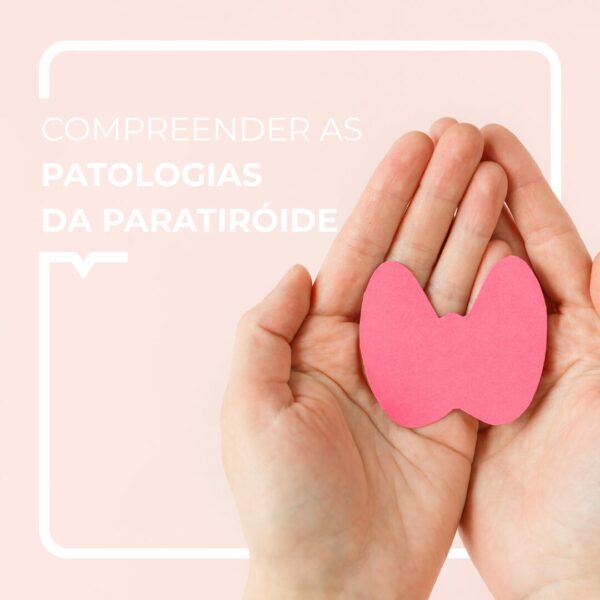O avô perdeu-se outra vez…
Não consegue encontrar o carro.
Já deu pelo menos 3 voltas à cidade, comprou 3 baguetes de pão e foi buscar o jornal duas vezes.
Em suma, a cabeça do avô está a pregar-lhe partidas. E se for o início da doença de Alzheimer?
Olá, aqui é a Dra. Joy!
Hoje estamos a responder às perguntas mais frequentes sobre a doença de Alzheimer.
O que é a doença de Alzheimer?
A doença de Alzheimer é uma doença neurodegenerativa. Implica uma lesão cerebral progressiva que conduz à morte dos neurónios. Caracteriza-se principalmente por uma perda progressiva da memória e de certas funções intelectuais (perturbações da linguagem e da motricidade, perda das funções executivas, etc.).
Estas perturbações acabam por ter repercussões nas atividades da vida quotidiana.
Os sintomas evoluem ao longo do tempo e são designados por fases. Estes variam de um indivíduo para outro.
What are the causes and risk factors of the disease ?
Até à data, as causas exatas da doença são ainda desconhecidas.
A investigação em curso sobre este tema permite-nos compreender melhor os mecanismos biológicos envolvidos.
O principal fator de risco é a idade: quanto mais velho for, maior é o risco de desenvolver a doença.
De facto, é um pouco como o caso do avô.
Os outros fatores são:
- Genética: apenas 1% dos casos
- Fatores ambientais como diabetes, excesso de peso, obesidade, tabagismo, consumo excessivo de álcool, stress crónico, etc.
Por conseguinte, um estilo de vida saudável é importante para prevenir a doença de Alzheimer (e muitas outras doenças).
Existem diferentes fases da doença de Alzheimer?
Sim, há um total de 7 fases da doença de Alzheimer. Isto deve-se ao facto de a doença de Alzheimer ser uma doença degenerativa, o que significa que se desenvolve ao longo do tempo.
As diferentes fases são teóricas. Na realidade, são diferentes de pessoa para pessoa.
As 7 fases são as seguintes:
- Fase 1: Sem perturbações
Todas as funções são normais.
A pessoa não tem problemas de memória. Não há sintomas de demência quando entrevistada por um profissional de saúde.
- Fase 2: Comprometimento cognitivo muito ligeiro
Pode estar relacionado com a idade ou com os primeiros sinais da doença de Alzheimer.
Pode parecer que tem lapsos de memória, que se esquece de palavras comuns ou da localização de determinados objetos do quotidiano. Mas os seus amigos ou os exames médicos não detetam quaisquer sinais de demência.
- Fase 3: Comprometimento cognitivo ligeiro
A partir desta fase, a doença de Alzheimer pode ser diagnosticada. Esta fase é designada por fase inicial.
Os amigos, a família e os colegas começam a aperceber-se de certos problemas. É frequentemente nesta fase que a pessoa começa a procurar ajuda. Os exames médicos aprofundados revelam problemas de memória ou de concentração.
Os sintomas nesta fase incluem:
- Dificuldade em encontrar a palavra certa ou o nome correto
- Maior dificuldade em realizar tarefas num contexto social ou profissional
- Esquecer-se de algo imediatamente após a sua leitura
- Perda ou extravio de um objeto de valor
- etc.
- Fase 4: Deficiência cognitiva moderada
Nesta fase, um exame médico exaustivo revela normalmente sintomas evidentes da doença.
Para além dos sintomas acima referidos, pode haver :
- Esquecimento do próprio passado
- Mudanças de humor ou abatimento
- etc.
AS OUTRAS FASES
- Fase 5: Comprometimento cognitivo moderadamente grave
Nesta fase, as pessoas com doença de Alzheimer precisam de ajuda para as atividades diárias.
Existem muitas associações para ajudar os prestadores de cuidados e apoiar os doentes.
Em Portugal, por exemplo, pode encontrar :
Alzheimer Portugal
Saúde mental PT
Alzheimer Europe
Para além dos sintomas acima descritos, as pessoas que sofrem desta doença também apresentam os seguintes sintomas:
- Desorientação temporo-espacial
- Dificuldade em resolver problemas matemáticos simples
- Necessidade de ajuda para escolher roupa para uma determinada estação ou ocasião
- etc.
- Fase 6: Comprometimento cognitivo grave
Os problemas de memória aumentam de forma constante. Nalguns casos, podem também ser observadas alterações de personalidade.
Nesta fase, as pessoas têm :
- Necessitam de ajuda para se vestirem corretamente
- Problemas graves com os padrões de sono
- Necessidade de ajuda para certas tarefas na casa de banho
- Tendência para deambular ou perder-se
- etc.
- Fase 7: Comprometimento cognitivo muito grave
Trata-se de uma fase muito avançada da doença. Durante esta fase, a pessoa já não é capaz de interagir com as pessoas que a rodeiam ou de manter uma conversa. No entanto, ainda consegue proferir algumas palavras ou frases.
É nesta fase que as pessoas com doença de Alzheimer são colocadas em instituições especializadas. Os reflexos tornam-se anormais. Os músculos endurecem. Começa a haver dificuldade em engolir.
Convém notar que estas diferentes fases podem sobrepor-se e são únicas para cada pessoa. É difícil determinar em que fase da doença uma pessoa se encontra. Os problemas de memória também podem ocorrer com a idade sem que se trate de doença de Alzheimer. Mas vale a pena certificar-se.
Como é diagnosticada a doença de Alzheimer?
O diagnóstico é inicialmente clínico. É importante fazer um diagnóstico diferencial de doença neurodegenerativa para garantir que não se trata de outra patologia.
Até à data, existem testes de diagnóstico poderosos, como avaliações neuropsicológicas exaustivas das funções cognitivas, bem como exames imagiológicos como a ressonância magnética e a PET de glicose. Estes exames permitem identificar as zonas do cérebro que estão a sofrer.
Também é possível efetuar uma punção lombar. Esta revela os sinais biológicos da doença, ou seja, a presença de depósitos anormais de proteína amiloide e tau.
Como é que a medicina alternativa pode ajudar a aliviar os sintomas?
Atualmente, não existe cura para a doença de Alzheimer. No entanto, existem tratamentos medicamentosos que podem reduzir os sintomas. Estes são introduzidos pela equipa médica do doente. Trata-se frequentemente de um geriatra ou, no caso de um doente recorrente, do médico de clínica geral.
Algumas medicinas alternativas podem também aliviar os sintomas da doença ou os associados aos efeitos secundários do tratamento. Pode ser o caso, por exemplo, das terapias comportamentais.
A meditação mindfulness, a hipnose e o EMDR demonstraram ser eficazes.
Todos os medicamentos que acalmam a ansiedade são igualmente recomendados. Esta última pode provocar problemas de atenção e de memória.
E quanto mais calmo estiver, maior é a sua concentração, pelo que a sua memória funciona melhor.
Agora já sabe um pouco mais sobre a doença de Alzheimer. De facto, o Dia da Doença de Alzheimer é celebrado em todo o mundo a 21 de setembro.
Até já,
Beijinhos!
Dra. Joy.
Fontes:
Estas informações não substituem o aconselhamento médico.
Deve procurar o conselho do seu médico ou de outro profissional de saúde qualificado para quaisquer questões que possa ter relativamente ao seu estado de saúde.



